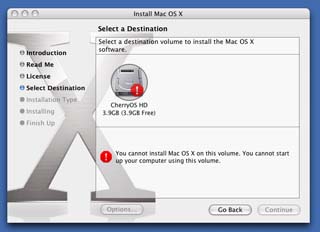

Its a problem that the early Christians also had. Very well put: its the essence of the problem very succinctly. “Apple is selling not just hardware, not just software, but the “Mac experience”.

Whether they can do it technically is a whole other question. Not purely by post sales restrictions on use. Just as MS will never be able to stop you running Office under Wine, so Apple will never be able to stop you running a bought copy of X on whatever you want. all that sort of thing is unenforceable.Īpple with OSX is in exactly the same situation as MS with Office. But the kind of restriction that says, only on my hardware, while it is technically possible to use it with other hardware, or only with my gasoline, when all gasoline is the same, or only in my cd players, when all cdplayers will play it…. It may be that there are some exceptions to do with health and safety. In the EC the informed view is that clauses which try to enforce post sales restrictions on use are just about always unenforceable on both counts. Whether it is enforceable depends on whether it falls foul of consumer protection legislation and anti trust legislation. That does not mean that any clause contained in a Eula is enforceable however. Now, as to Eulas, in some countries, Eulas in themselves do constitute a valid contract. Apple has indeed sold you a copy of the software, and you can indeed do what you want with it, subject to local law on copyright and cracking.
#Mac os x emulator pearpc software#
“you have no legal entittlement to the software you LICENSE, you do not own the software and therefore Apple has every right to tell you what you can and can not do, you have agreed to a license, and in most contries a license is a legally binding contract, so no, you’re wrong Apple can stop you modifying their software.”Īs usual, this is completely confused.


 0 kommentar(er)
0 kommentar(er)
